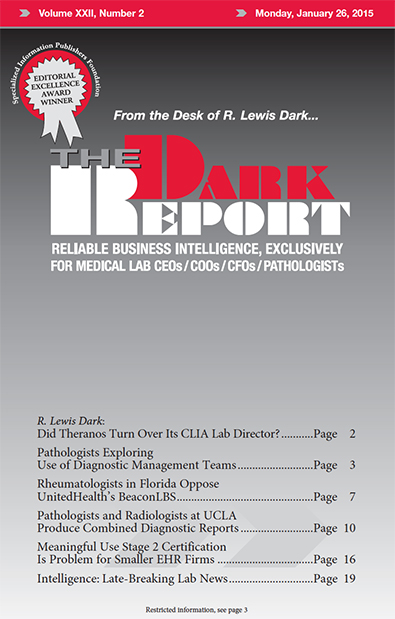CEO SUMMARY: Yet another specialty society is opposing the laboratory benefit management program UnitedHealthcare introduced in Florida last fall. Rheumatologists have joined four other specialty physicians in saying UHC’s BeaconLBS system could be detrimental to patient care. In a letter to UHC, the Coalition of State Rheumatology Organizations said it, “will pursue the reversal of this policy with our state and national societies through every regulatory, legislative, and public means possible.”
To access this post, you must purchase The Dark Report.


